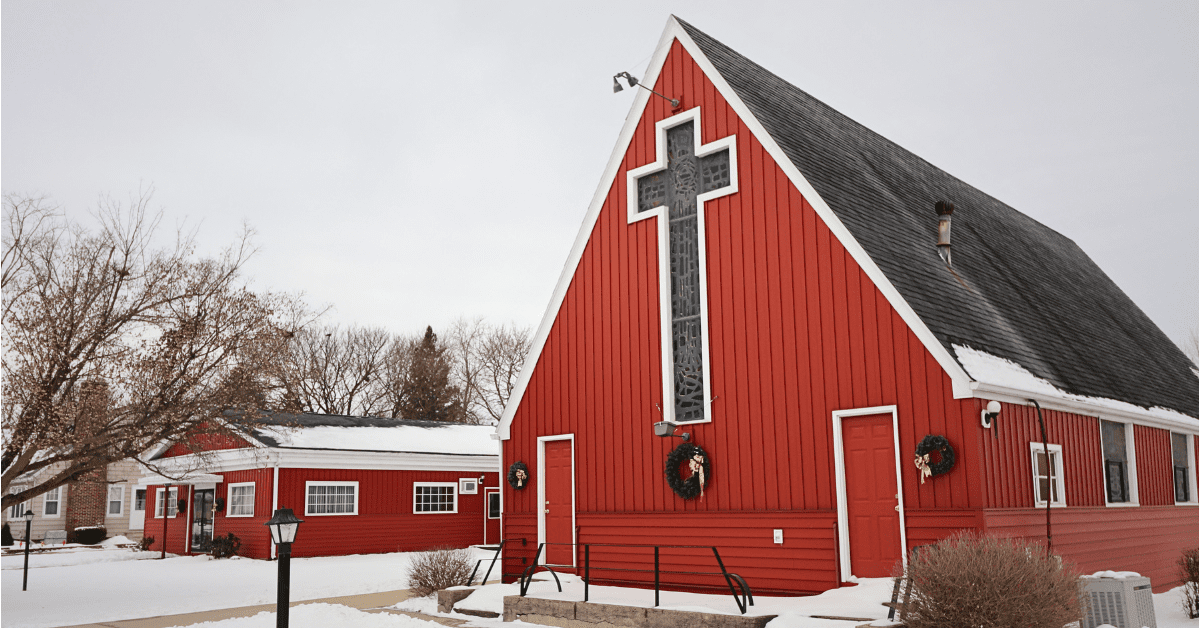First Lutheran Church in Clarion, Iowa is like many small congregations in small towns; aging, slowly declining in Sunday morning worship and Sunday School attendance, with budget challenges that lead to reducing staff. Yet, the sentiment among members is one of excitement and hope as we “actively share the way of Jesus with more people so that they might experience community, justice and love.”
A good idea should be able to come from anywhere
It was March 2020, about two weeks or so before life as we knew it would change. Hannah Johnson, a young adult member of First Lutheran, had been operating a small clothing closet through the church for anyone in need with a few food items available that the local grocery store donated. It was clear to Hannah, people were coming more for food than for clothes. She reached out to the Food Bank of Iowa, a food distributor for pantries throughout the state. A connection was made—with timing that could only be of God’s doing. First Lutheran became a Food Bank distribution site, then COVID and quarantine hit us. Through two years of the pandemic, community members received eighty thousand pounds of food, and community individuals, churches, organizations and businesses donated over $40,000. The connections and collaborations only begin there.
As the pastor of First Lutheran, I served on the Iowa State University Extension and Outreach Council for Wright County. In August 2020, ISU challenged its county extensions to creatively respond to community COVID needs. I suggested that the extension staff form a coalition of food assistance providers throughout the county in order to strengthen and coordinate efforts. One result was the FLC Food Pantry and the Extension receiving an ISU Master Gardeners Growing Iowa grant to form a community garden. Food pantry patrons would not only have fresh produce available, but could also learn gardening techniques and grow food to give away to others. The collaboration with ISU Extension included bringing other educational programming to food pantry patrons on topics like nutrition and cooking on a budget.
Collaboration inspires collaboration
In 2021, First Lutheran added a hot community meal once a month to fight the isolation that so many were experiencing. When more people came together new ideas came as well, as people wondered, who else needs food and a sense of connection? The Food Pantry added delivery to seniors but were stretched finding volunteers. The Congregational Church across the street stepped up, and the Lions Club from a neighboring town volunteered to deliver meals in their community. Now that town has provided space for the pantry to expand to that community. In 2022, the food pantry also partnered with a ministry that distributes clothes and furniture with the goal that “no kid in Wright County should have to sleep on the floor”. Yet another project gave away dresses so that cost would not keep any student from going to prom.
The Way of Jesus is compelling
More people keep showing up, like the First Lutheran Food Pantry is a magnet. Now in the summer of 2023, the food pantry has between 800-900 patrons visit in a month, over four distribution sites that span the whole county. Each pantry event also attracts more volunteers to help lift the load. Some are “members” of First Lutheran; most are not. All are wrapped up in Jesus together. Sure, the work is hard, but there is an energy and Spirit that goes way beyond the giving and receiving of food. Sunday morning still faces the same challenges that most of our congregations face. Yet, there is very little feeling that this chapter of First Lutheran is one of decline. Rather we are turning the page to a new chapter.
Innovation is not something we have had to work at. Innovation, collaboration, new ideas, and new people are simply the outcome of what happens when the whole congregation lives out the evangelical freedom born into us through Jesus Christ, when we, like Luther says, live like “Little Christs” for our neighbors.



